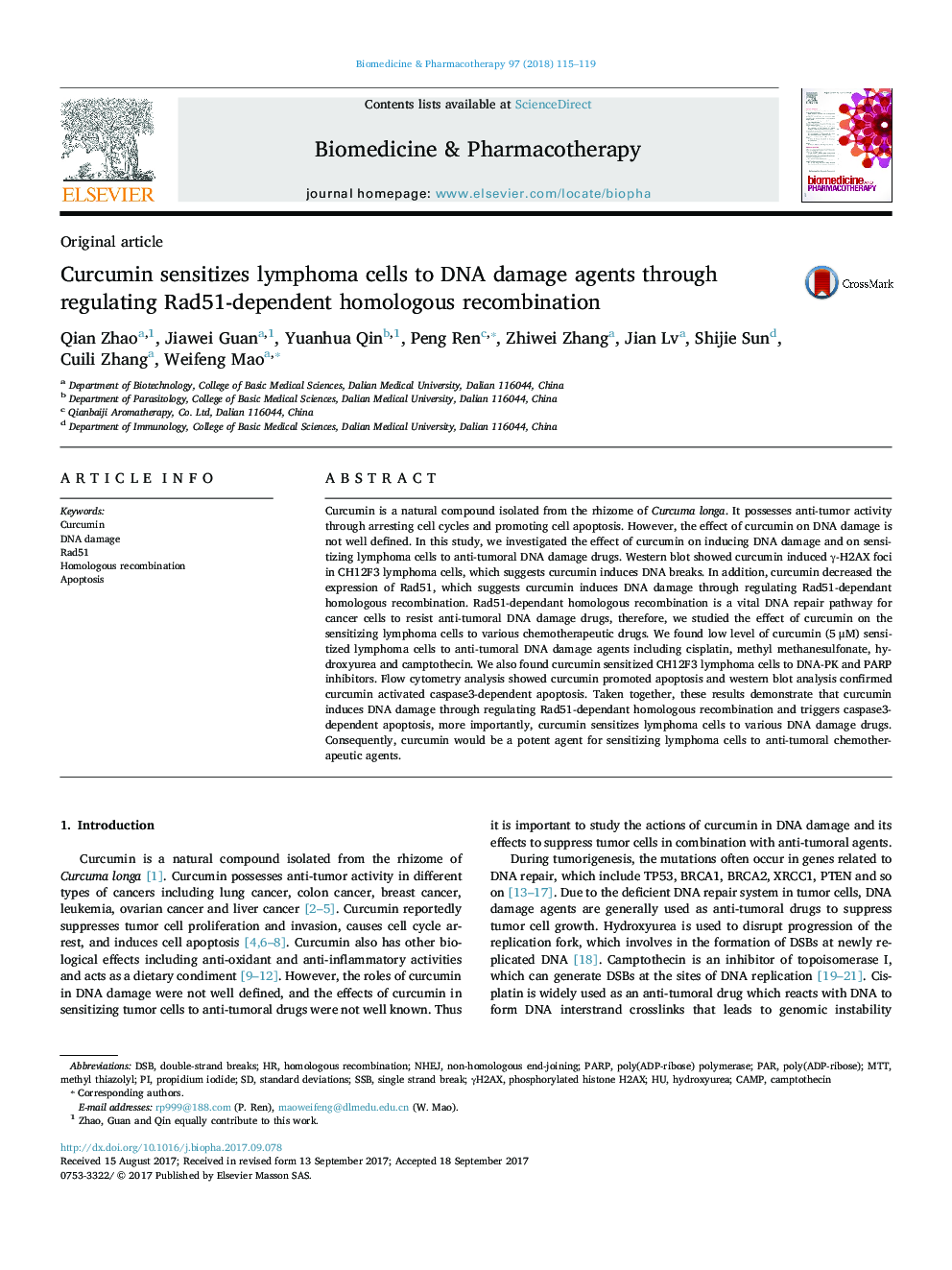| Article ID | Journal | Published Year | Pages | File Type |
|---|---|---|---|---|
| 8526256 | Biomedicine & Pharmacotherapy | 2018 | 5 Pages |
Abstract
Curcumin is a natural compound isolated from the rhizome of Curcuma longa. It possesses anti-tumor activity through arresting cell cycles and promoting cell apoptosis. However, the effect of curcumin on DNA damage is not well defined. In this study, we investigated the effect of curcumin on inducing DNA damage and on sensitizing lymphoma cells to anti-tumoral DNA damage drugs. Western blot showed curcumin induced γ-H2AX foci in CH12F3 lymphoma cells, which suggests curcumin induces DNA breaks. In addition, curcumin decreased the expression of Rad51, which suggests curcumin induces DNA damage through regulating Rad51-dependant homologous recombination. Rad51-dependant homologous recombination is a vital DNA repair pathway for cancer cells to resist anti-tumoral DNA damage drugs, therefore, we studied the effect of curcumin on the sensitizing lymphoma cells to various chemotherapeutic drugs. We found low level of curcumin (5 μM) sensitized lymphoma cells to anti-tumoral DNA damage agents including cisplatin, methyl methanesulfonate, hydroxyurea and camptothecin. We also found curcumin sensitized CH12F3 lymphoma cells to DNA-PK and PARP inhibitors. Flow cytometry analysis showed curcumin promoted apoptosis and western blot analysis confirmed curcumin activated caspase3-dependent apoptosis. Taken together, these results demonstrate that curcumin induces DNA damage through regulating Rad51-dependant homologous recombination and triggers caspase3-dependent apoptosis, more importantly, curcumin sensitizes lymphoma cells to various DNA damage drugs. Consequently, curcumin would be a potent agent for sensitizing lymphoma cells to anti-tumoral chemotherapeutic agents.
Keywords
Related Topics
Health Sciences
Medicine and Dentistry
Oncology
Authors
Qian Zhao, Jiawei Guan, Yuanhua Qin, Peng Ren, Zhiwei Zhang, Jian Lv, Shijie Sun, Cuili Zhang, Weifeng Mao,
